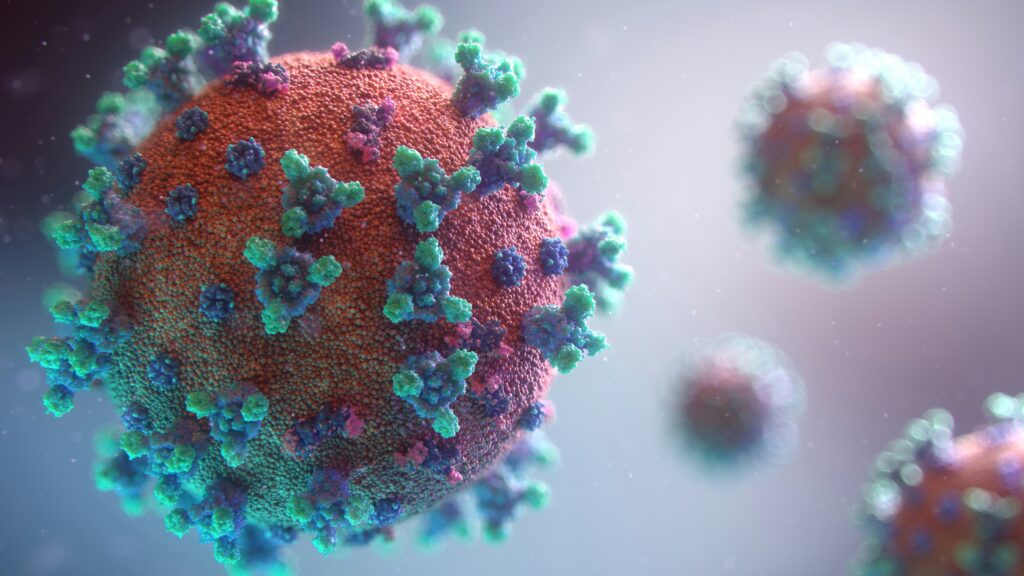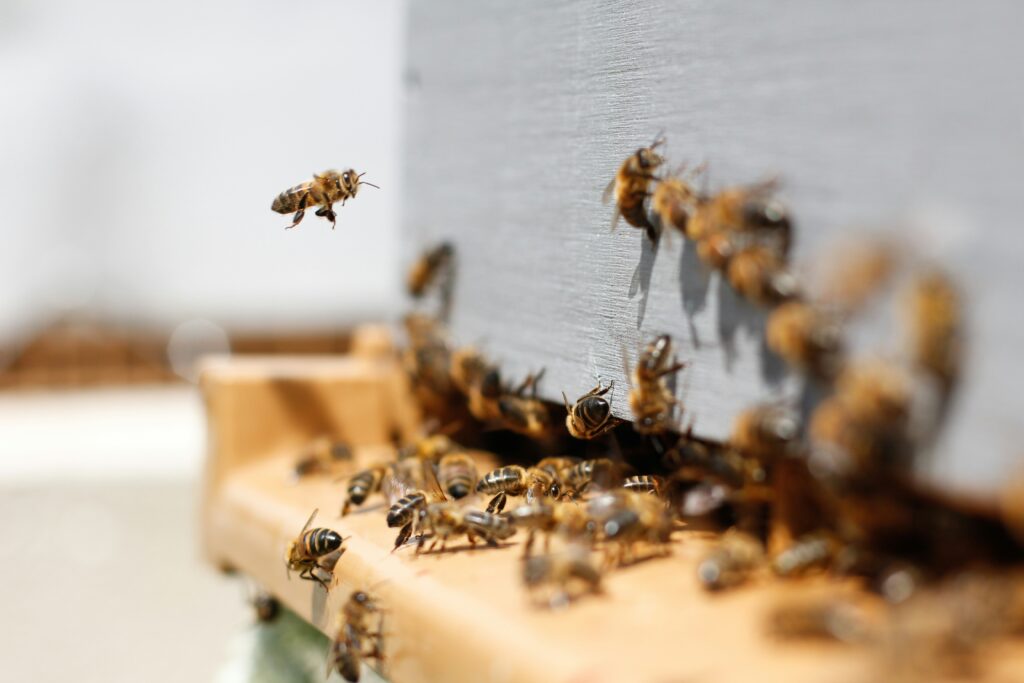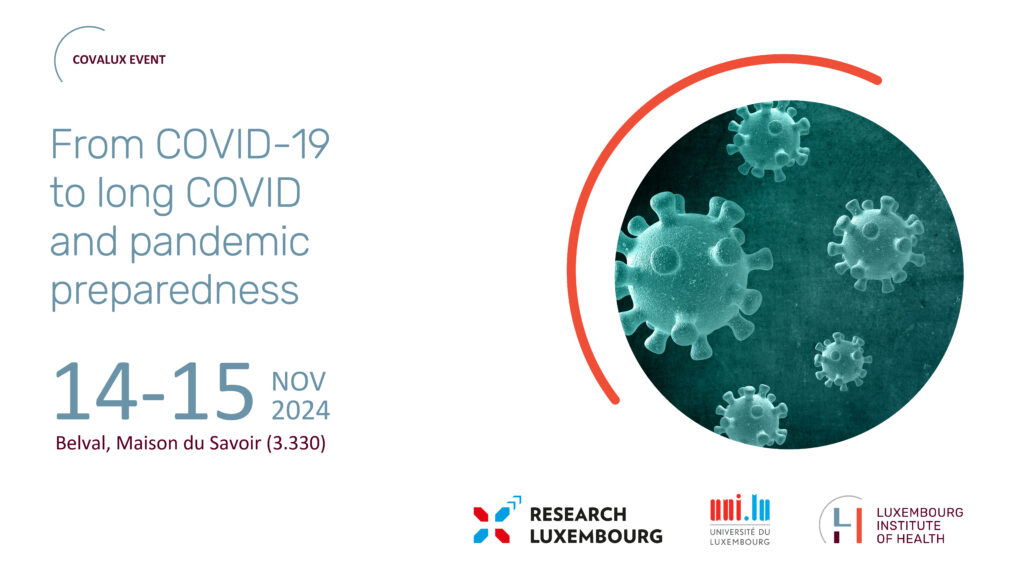- Domaines || de recherche
- Recherche Translationnelle
- Médecine translationnelle transversale (MTT)
- Centre opérationnel de médecine translationnelle (TMOH)
- Service Gestion de projets cliniques (CPMO)
- Centre d'investigation clinique & épidémiologique
- Centre de recherche clinique & translationnelle du Luxembourg (LCTR)
- Biobanque intégrée du Luxembourg (IBBL)
- Disease Modeling & Screening Platform (DMSP)
- Centre du génome Luxgen
- Plateforme de recherche en pathologie (RPP)
- Projets de Recherche
et essais cliniquesSoutenez-nous - Recherche Translationnelle
series
[Article series] The experts behind Luxembourg’s Covid-19 fight
Cet article n’est actuellement qu’en anglais. La version française sera bientôt disponible.
16 avril 2020
5minutes

Interview with Dr Chantal Snoeck
Dr Chantal Snoeck (CS) is a scientist within the Clinical and Applied Virology of the LIH Department of Infection and Immunity. As an expert virologist, her research focuses on the factors that allow animal viruses to make a species “jump” and infect humans, as well as on the diagnosis of viral infections based on the analysis of antibodies in human serum or by looking for the virus itself in various sample types. Her expertise is therefore particularly relevant in the current fight against COVID-19. In this short interview, she discusses her involvement in ongoing COVID-19 projects.
Dr Snoeck, could you tell us more about your expertise and research interests?
CS: I am a virologist, being particularly interested in zoonotic viruses, i.e. viruses that typically infect animals but that acquire the ability to cross the species barrier and infect humans. Indeed, understanding the modality of transmission and infection in animals is crucial in order to prevent these viruses from “spilling over” and passing on to humans. Within the Clinical and Applied Virology group at LIH, my research focuses specifically on the investigation of past exposure to viral infections by detecting antibodies in the serum of both humans and animals. This information, coupled with data such as past symptoms, type of contacts, behaviour and eating habits, helps us determine risk factors that could lead to spill-over events and consequently emit recommendations for preventive measures. Moreover, by studying the genomes of zoonotic viruses, we can monitor their geographical and biological origin – i.e. whether the virus likely originated in a human or animal host – how they spread across regions and how they evolve. I therefore have extensive expertise in working with dangerous viruses in high security labs, known as “Biosafety level 3” (BSL3).
What is your specific role in the ongoing COVID-19 initiatives of the Research Luxembourg taskforce?
CS: Currently, I am involved in setting up additional laboratory capacity and alternative diagnostic techniques at LIH, as well as assessing the fitness-for-purpose of commercial diagnostic assays, with the aim of providing support in screening patients. For instance, many companies are offering all-in-one diagnostic solutions, but the surge in global demand caused by the COVID-19 pandemic has stretched their ability to deliver their products to meet the requirements for widespread testing. Indeed, just as we are having trouble finding masks and hand sanitisers, the reagents to perform these diagnostic tests are also becoming difficult to procure. This is where we come in. We are trying to find more flexible alternative solutions using separate “generic” reagents, as opposed to all-in-one preassembled kits, which we can subsequently put together ourselves. This approach is often used in research settings because, aside from being more economical than commercial ready-made solutions, it offers us more control and adaptability. Indeed, our in-house assays can be more easily adapted to reflect any mutations in the viral genome, which could otherwise affect the ability of commercial tests to detect its presence. This way, we make sure that, if the virus changes, our test changes with it, thus ensuring its efficacy. On a side note, not all commercial products available on the market are equally effective, which is why it is important to test them before they are used more widely for diagnostics or research purposes. In addition to this very important task, I am also involved in several studies with internal partners within LIH and IBBL, but also in collaboration with all the Research Luxembourg partners, leveraging on the expertise I gained over the years by working in the Infectious Diseases Research Unit at LIH. Last but not least, our team has been successfully collaborating for many years with partners from low and middle-income countries in West and Central Africa, South-East Asia and the Caribbean to provide support and develop their diagnostic and research capacities. They are all facing the COVID-19 pandemic with lesser means, and it is therefore our duty to support them as well.
Finally, could you tell us more about your team members at LIH and their roles?
CS: The core team involved in these tasks is composed of lab technicians and research engineers from several teams within the Department of Infection and Immunity. Among them there are Emilie Charpentier, Sophie Mériaux, Aurélie Sausy, Manuel Counson, Gilles Iserentant and Jean-Yves Servais, who are devising and testing the protocols, comparing the efficacy of reagents and testing samples. In parallel, we are working with LIH colleagues Carole Devaux and Danielle Perez-Bercoff, as well as with the Centre Hospitalier de Luxembourg (CHL), to develop protocols to follow up hospitalised patients, monitor how well they respond to treatment and improve their care in the long run. A big collaboration within the LIH Department of Infection and Immunity is also being set up to screen patients for the presence of antibodies against the virus through new high throughput assays, to identify those who have been infected and recovered. This effort involves Christiane Hilger, Annette Kuehn, Andy Chevigne, Danielle Perez-Bercoff and Judith Hübschen, as well as some other volunteers from the department.


->From left to right: Aurélie Sausy, Gilles Iserentant, Sophie Mériaux, Emilie Charpentier, Chantal Snoeck, Manuel Counson
MORE INFORMATION
For the latest news about COVID-19, visit coronavirus.lih.lu







